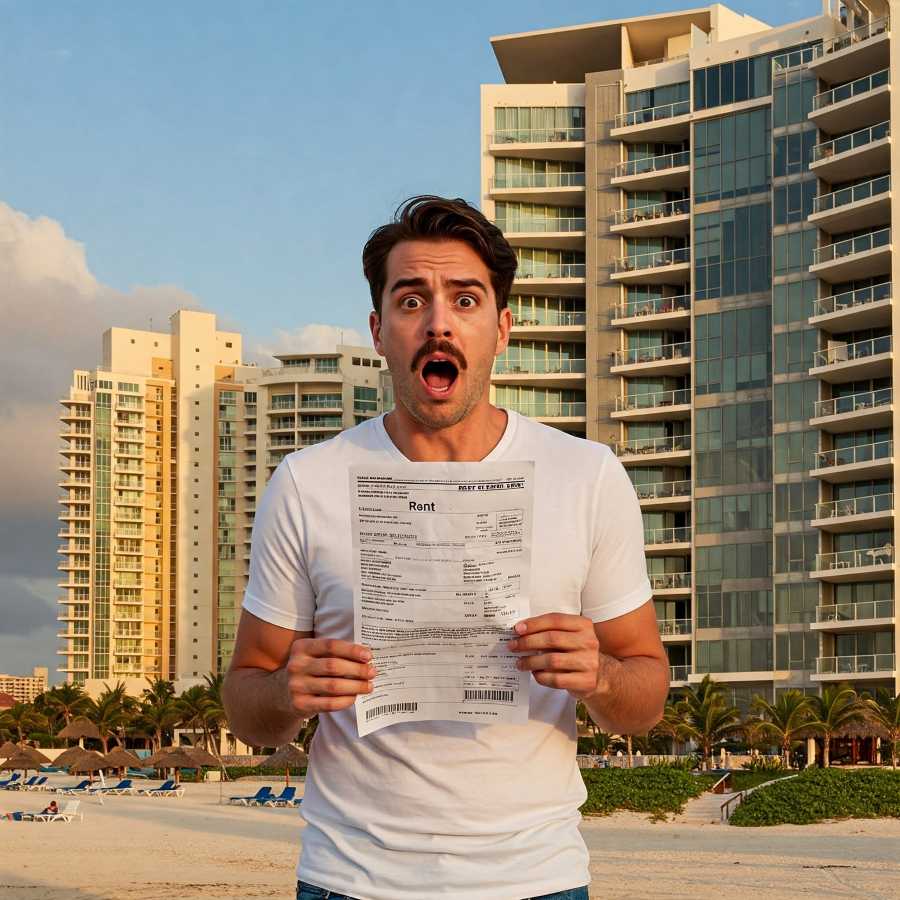Why Living in Cancun Ain't the Cheap Escape It Used to Be
Once a perceived budget paradise, Cancun's cost of living, fueled by tourism and increasing demand, is rapidly rising, making it a far less affordable option for long-term residents in 2025.

Forget the filtered Insta snaps and the all-inclusive brochure promises. You wanna know what living in Cancun really costs? Beyond the Señor Frog's margaritas and the meticulously manicured resort lawns? Brace yourself, because the "tropical bargain" narrative is getting a serious reality check in 2025. While it ain't exactly Park Avenue South, this sun-drenched slice of the Yucatán is feeling the pinch, and it's the folks trying to live here long-term who are footing the bill.
For years, Cancun was the golden goose for gringos seeking a cheaper slice of paradise. Your dollars stretched further, your rent was a joke compared to back home, and fresh tacos cost less than a fancy coffee. But times, they are a-changin'. The secret is out, the tourists keep flooding in, and where demand goes, prices follow – often with a vengeance.
So, what's the damage if you're dreaming of making Cancun more than just a week-long escape? Let's break it down, piece by gritty piece.
Rent Rockets, Buying a Beach Shack Ain't Cheap
First up, the roof over your head. The days of scoring a sweet pad for a few hundred bucks a month in a decent area? Mostly a fond, distant memory. While you can still find more "local" pricing away from the Hotel Zone circus, expect to pay significantly more than you would have even a couple of years ago.
We're talking one-bedroom apartments in the city center hitting the $600-$800 range, and often a good chunk higher. Want something closer to the action or with a few more creature comforts? You can easily blow past the $1,000 or even $1,500 mark in a blink. Step outside the immediate downtown core, and you might shave off a couple hundred, but you'll be adding commute time in Cancun's often-gridlocked traffic.
Thinking of buying your slice of the Caribbean dream? Unless you're packing serious heat in the bank account, that beachfront villa is likely a fantasy. Median home prices are pushing towards the $180,000 mark, and anything resort-adjacent or with a view will cost you considerably more. Add in closing costs, annual property taxes (though still relatively low compared to the US), and those pesky bank trust fees for foreigners, and you're looking at a significant investment. The "Cancun bargain" in real estate? It's largely evaporated for all but the most far-flung or basic properties.
Alright, so you've got a place. Now you gotta eat. And while local markets still offer some relief and incredible fresh produce, your overall grocery bill isn't immune to the rising tide. Imported goods, those familiar brands you might crave, will cost you a premium – sometimes a serious premium.
Even local staples are seeing price hikes. We're hearing reports of eggs, meat, and poultry prices soaring. While some fruits and veggies might fluctuate, don't expect to live solely on budget-friendly tropical produce. Your weekly haul at the supermarket or even a larger local store will likely set you back a few hundred bucks, depending on your diet and how much you rely on imported items. Eating out at local joints (comida corrida) remains relatively affordable, but hit the touristy spots and prepare for prices that wouldn't be out of place in a mid-tier American city.
Getting Around Beyond Your Own Two Feet, It Adds Up
Navigating Cancun has its costs too. Public buses are the undisputed champions of budget transportation, with rides costing well under a dollar. They're a solid option for getting around the main parts of the city and even out to the Hotel Zone if you're not in a rush.
Taxis, on the other hand, can feel like a shakedown, especially if you look like a tourist. Fares for even short distances can be surprisingly steep, and negotiating is often necessary. Forget Uber – it's been a whole dramatic saga down here, and while ride-sharing options pop up, they can be unreliable or face local opposition. If you're planning on exploring beyond Cancun, factor in the cost of ADO buses (a comfortable and reliable option for intercity travel) or increasingly expensive rental cars. Owning a car adds gas, maintenance, and the headache of parking in busy areas.
Utilities. In a place as hot and humid as Cancun, your electricity bill can be a real killer, especially if you rely heavily on air conditioning. Those monthly costs can swing wildly depending on your usage, easily running into the hundreds of dollars during the hotter months. Water is generally more reasonable, but still a recurring expense. Internet and mobile plans are available at various price points, but high-speed, reliable service will cost you.
Healthcare in Cancun can be a mixed bag. There are modern hospitals and clinics, particularly catering to medical tourists, but the costs can be significant if you don't have insurance. While a basic doctor's visit might be manageable, specialist consultations, procedures, or hospital stays can quickly rack up a hefty bill. Private health insurance for expats is a wise investment, but it's another line item in your monthly budget, potentially running into a few hundred dollars or more depending on coverage.
Cancun is synonymous with entertainment, but experiencing the best of it comes with a price tag. While the beach is free (mostly, some beach clubs have fees or minimums), hitting the famous nightclubs in the Hotel Zone will cost you a cover charge and inflated drink prices. Excursions to nearby cenotes, archaeological sites, or Isla Mujeres add up with transportation and entrance fees. Dining out, as mentioned, can range from cheap eats to seriously expensive depending on the venue. Gym memberships, movie tickets, and other leisure activities are comparable to, or slightly less than, what you might pay back home.
The Tourism Boomtown Blues for Locals?
There's no doubt that tourism is the engine of Cancun's economy. It provides jobs and brings in revenue. But it also creates a demand and pricing pressure that directly impacts the cost of living for those who call Cancun home year-round. The influx of digital nomads and expats, often with higher earning potential, can further exacerbate this, driving up rental prices and the cost of goods and services in desirable areas. It's a classic case of a rising tide lifting some boats higher than others, and for many local residents, the tide of increased costs is a significant challenge.
So, can you still live cheaply in Cancun? It's possible, but it requires making conscious choices, living like a local away from the tourist bubble, and being mindful of where every peso goes. If your idea of living in Cancun involves beachfront property, daily fine dining, and hitting the clubs every night, be prepared to shell out serious cash – potentially even more than you would in some areas of the United States.
For those willing to embrace a more local lifestyle, cook at home, use public transport, and seek out more affordable entertainment options, Cancun can still offer a good quality of life at a lower cost than many Western cities. But the days of it being a no-brainer, dirt-cheap paradise are, for the most part, in the rearview mirror. The cost of living in Cancun is on the rise, and anyone considering making the move needs to arrive with eyes wide open and a realistic budget. Paradise, it turns out, has a price tag, and in Cancun circa 2025, that price is going up.




